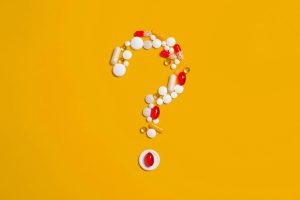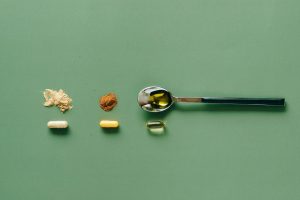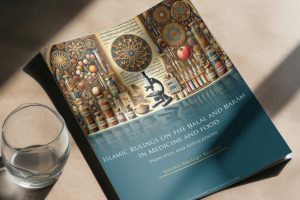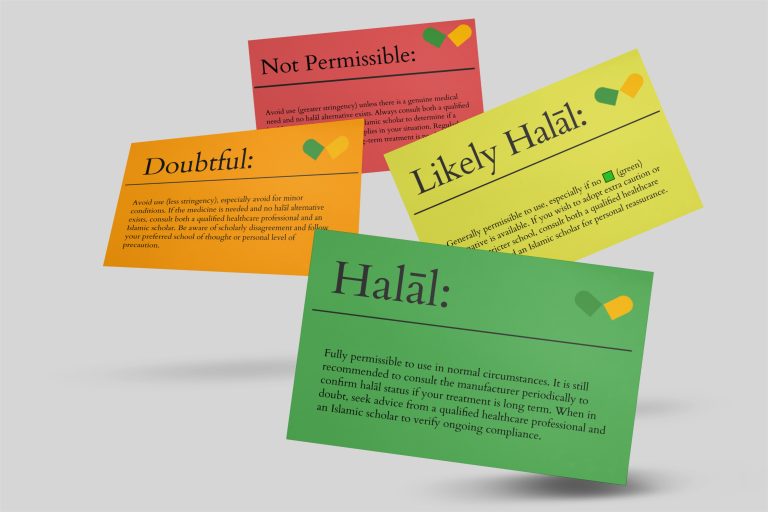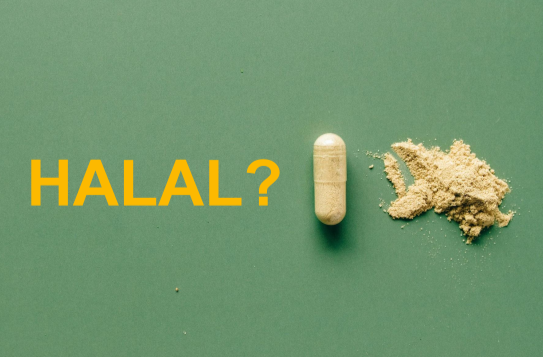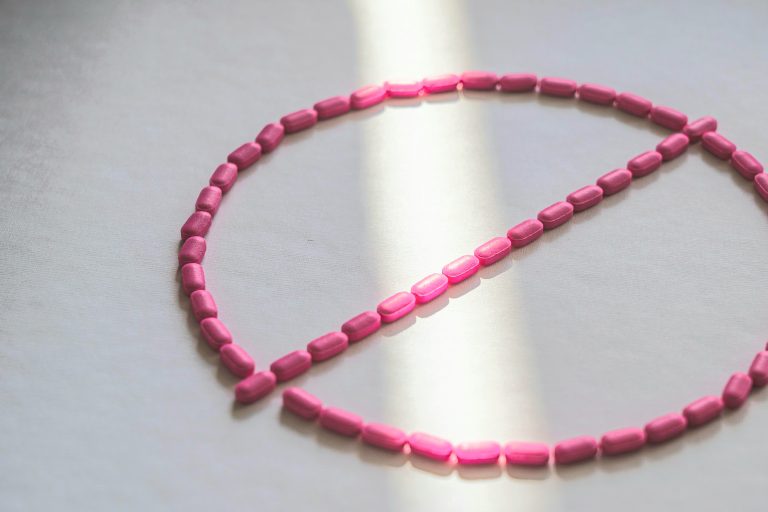How to find out if a medicine contains harām ingredients and/or excipients and its permissibility
This information resource can help you find out if a medicines contains ingredient(s) and/or excipient(s) that may possibly be harām (prohibited) and the information you need to gather to determine its permissibility.
This resource is for the Muslim community (including patients, carers, parents and members of the public). Healthcare professionals (HCPs), may also find it useful when supporting individuals with gathering and understanding information about their medicine(s). There is also an email template to help you seek further information from medicine companies.
If you find out a medicine contains possible harām ingredients and/or excipients, see our resource on ‘What to do if a medicine contains harām ingredients an/or excipients‘.
Who can find out information about medicines
You can try and find out the information yourself if you feel confident using the steps below. However, a pharmacist, who is an expert in medicine, can help you find out information. You could speak to a pharmacist working in the following areas:
- The community pharmacy – where you get your regular medicines dispensed, as they have access to your medication records
- The local hospital – if you received your medicines from the hospital pharmacy
- The GP practice – some surgeries have a practice-based pharmacist available that you can make an appointment with.
Checking for ingredients and/or excipients
You can find product information using the Summary of Product Characteristics (SmPC), Patient Information Leaflet (PIL) which are available on the electronic medicines compendium (eMC), Medicines and Healthcare products Regulatory Agency (MHRA) products website or medicine company website. Individuals and HCPS may find the SmPC the most useful source to find out information about ingredients and excipients.
Follow the steps below:
Step one: Find product information using the SmPC
- Go to the emc website (log in may be required) and search a medicine by medicine name or company
- Select and click the correct medicine, ensuring you select the right name or brand, formulation, strength and company name
- Click the ‘Healthcare Professionals (SmPC)’ tab for the SmPC
- Check the Product Licence number (PL number) on your medicine box (usually on the side) is the same as the PL number under section 8 ‘Marketing authorisation number(s)’ to make sure you have the right product
- If you are having difficulties in understanding or navigating the SmPC, ask a pharmacist for help and support.
Step two: Check ingredients/excipients
- On the relevant product SmPC, click on section 2. ‘Qualitative and quantitative composition’ and cross-check the active ingredients against our resources under ‘Ingredients and excipients in medicines’, to see if it may be animal-derived
- On the relevant product SmPC, click on section 6.1 ‘List of excipients’ and cross-check the excipients against our resources under ‘Ingredients and excipients in medicines’, to see if it may be animal-derived or if it contains ethanol
- If you are still unsure if your medicine contains a particular ingredient and/or excipient, speak to a pharmacist for help and support.
Step three: Seek more details if needed
Depending on the ingredient(s) and/or excipient(s) you identify, you may need to contact the Marketing Authorization Holder (MAH) to find out further information, to help you determine if a medicine is halāl or harām to take/use. For further information on individual ingredients and excipients, see resources under ‘Ingredients and excipients in medicines’.
For example, you may need to find out about the:
- Source of the ingredient(s) and/or excipient(s)
- Percentage of ethanol in the final product
- Potential for cross-contamination or potential contact with harām sources during the manufacturing process – this information is not always readily available from all manufacturers
- Halāl certification – to ensure halāl-compliant manufacturing.
Sometimes, the MAHs cannot guarantee the sources of ingredients and/or excipients for various reasons e.g. they may use different suppliers in the manufacturing process, or the sources, suppliers and formulation can change. Therefore, it is important to check this information regularly to ensure the most up-to-date halāl status and suitability.
Each brand or generic formulation of the same medicine may be made using ingredients and/or excipients from different sources and suppliers. Therefore, it is important to check this information for each brand or generic formulation to ensure halāl status and suitability
If the excipient information is unclear or you require further information, then ask the MAH for reassurance. You can find MAH details in the PIL that comes with the medicine packaging or in the SmPC which can be found on the emc website for the relevant product (please note the MAH may or may not be the same company as the manufacturer).
You may wish to use our email template [link], which you can send to the relevant product MAH medical information teams to help you gather further information. The information you receive may help you in discussions with your HCP, local Imam or trusted Islamic scholar.
⚠️If you find out the medicine does contain harām ingredients and/or excipients from harām sources or there is cross-contamination → see the section on ‘Checking if a medicine permissible to take/use’.
✅If you are satisfied that your medicine does not contain harām ingredients and/or excipients from harām sources and there is no cross-contamination → continue or commence taking/using the medicine as directed/prescribed.
Checking if a medicine is permissible to take/use
Classify the medicine
With the information you have gathered, you can classify the medicine to help you determine if it is permissible to take/use. You can use our resource on Reason codes: putting the classifications into practice to help you do this. You may also find our resource on How we classify medicines based on ingredients and excipients helpful for further guidance. It is important to note that a ‘Green’ classification mentioned in the resource Reason codes: putting the classifications into practice, means the medicine is acceptable; however, the risk of cross-contamination cannot be guaranteed (although minimal). If you are concerned about cross contamination, contact the MAH for clarification.
Meeting the five conditions
It is important to remember that even if a medicine contains a harām ingredient and/or excipient, this does not always mean it is prohibited (harām) to take/use.
If you find out the medicine contains harām ingredients and/or excipients, is derived from harām sources, or where there is cross-contamination with harām sources then there are five conditions that must be met to make the harām medicine permissible to take/use. Find out if you meet the five conditions here.
✅If all five conditions are met, it is permissible to take/use the medicine even if it contains harām ingredients and/or excipients.
⚠️If all five conditions are not met, then it may not be permissible to take/use the medicine and you should see our resource on ‘What to do if a medicine contains harām ingredients and/or excipients‘. This resource includes the conditions of when it is acceptable to take/use a medicine that contains harām ingredients and/or excipients from harām sources. It may also help you make informed decisions on the next steps in discussions with your healthcare professional.
If you are still not sure about the permissibility of your medicines, you may want to speak to your:
- Local HCP – such as your pharmacist, nurse or doctor to help you understand if the five conditions are met for your individual circumstances. A practising Muslim HCP may have relevant knowledge of Fiqh in this area
- Local Imam or trusted Islamic scholar (ideally who has relevant knowledge and expertise in the Fiqh of medicines).
You may need to book an appointment to arrange a discussion with them. It may be helpful for you to take photos of the medicine packaging with you (to identify the manufacturer) and any information that you have gathered already using this resource, to support discussions. Remember to write down any questions you may have for them.
Practical considerations for healthcare professionals
For HCPs and anyone involved in delivering care and support, it is important to:
- Understand which ingredients and/or excipients in medicines may be a concern for practising Muslims and why – for further information, see our resources under ‘Ingredients and excipients in medicines‘.
- Have open discussions with individuals about their personal values or beliefs that may relate to their care and support where possible – e.g. some individuals may wish to avoid certain ingredients/excipients in medicines due to religious beliefs, others may not be as practising or have the same beliefs, so it is important to ask.
- Discuss ideas, concerns and expectations – e.g. during consultations, you may be asked to help individuals to understand whether certain ingredients/excipients are present in their medicine(s), its source, and whether it is likely to be considered permissible in Islam/suitable for a halāl diet.
- To find out how to check if a medicine contains harām ingredients and/or excipients, see section ‘Checking for ingredients and/or excipients’.
- For further information on the conditions of when it is acceptable for a practising Muslim individual to take/use a medicine that contains harām ingredients and/or excipients, is derived from harām sources, or where there is cross-contamination with harām sources, see our resource on ‘What to do if a medicine contains harām ingredients and/or excipients‘.
- Respect and support individuals in making informed decisions about their treatment.
- Understand you may be asked to explore alternative formulations that meet the individual’s religious requirements (where available), alternative companies that make the medicine without a particular excipient/ingredient (where possible) or alternative treatment options for the condition (where clinically appropriate)
- HCPs may find the Specialist Pharmacy Service (SPS) resource on ‘Searching for presence or absence of an excipient in medicines’ useful to help them find alternative halāl medicines that don’t contain certain ingredients or excipients. Further information can be found on the SPS website
- There may be situations where you cannot prescribe/supply an alternative halāl medicine which you may need to explain to the individual – for further information, see sections on ‘Hardship begets facility’ and ‘Limitations on prescribing an alternative halāl medicine‘.


